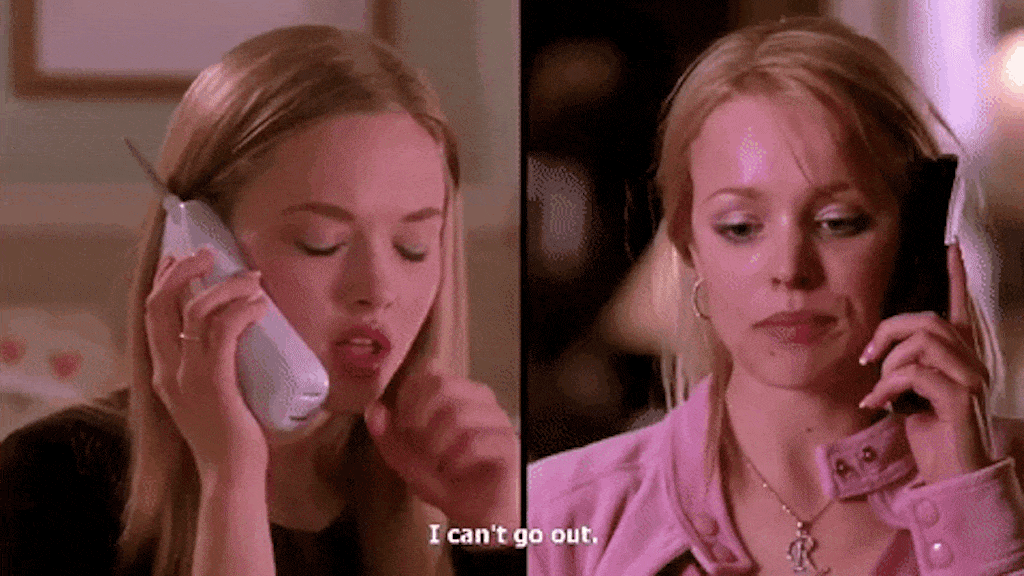There’s no greater feeling than the rush of euphoria we get when weekday plans are cancelled.
Either our friend has sent us a text at the last moment, blaming their flakiness on deadlines/sickness – or we’ve bailed on them, citing any number of excuses, when the reality is that we just want to retreat to our sofas and enjoy an evening at home.
And it seems as if we’re not alone in our flakiness: a survey of 2,000 people revealed that the average Brit makes 104 social arrangements every year – but will actually only turn up to half of them.
The research, carried out by Mentos, revealed that we are truly living in a “cancellation nation”, with one in three people admitting that they say yes to every single invite they receive, whether they intend to go or not.
Experts have done their best to work out why we love cancelling on our pals so much (after all, you’d expect us to feel at least a little guilty about it), and one psychologist thinks that she’s cracked the code.
And, no, it’s not just because we are “the lazy generation” (so pipe down, The F-Ups).
Are you ready for this?
We love to cancel plans because, deep down, we’re all rebels.
That’s right: cancelling on someone is the ultimate way to feel as if you’re in charge of your plans (and destiny) – and there’s a pleasure, as well as relief, to be found in doing exactly that.
“You’re reasserting control, and that’s a sign that you got roped into the plans in the first place,” explains Dr Andrea Bonior in an interview with Refinery29. “It’s like, ‘You made me say yes, but I wasn’t allowed to say no, so now I’m asserting control’.”
That sounds about right.
But, while it feels good to be a rebel-rebel (hey, David Bowie wrote an entire song about it), some psychologists have pointed out that the short-lived rush we get from cancelling on plans is nothing compared to the long-term benefits of keeping them.
Writing in Psychology Today, Dr Brent Roberts explained that scatterbrains are lacking in conscientiousness (a fundamental personality trait that is “equal parts industriousness, impulse control, organisation, interpersonal responsibility, and conventionality”).
However, if you still can’t think of anything better than cancelling plans, then it’s worth taking a closer look at the people you’re turning down.
“If it regularly feels good to cancel plans, those plans probably shouldn’t have been made in the first place,” says Bonior.
“The question is, why are you making plans if you don’t want to keep them?”
Of course, it goes without saying that some people’s reasons for cancelling an event may be caused by a social anxiety disorder.
According to NHS Choices, this is one of the most common anxiety disorders and is much more intense than “shyness”.
“Someone with a social anxiety disorder will worry excessively about them before, during and afterwards,” they explain.
“They fear doing or saying something they think will be embarrassing or humiliating, such as blushing, sweating or appearing incompetent.”
Signs of a social anxiety disorder include:
- Dreading social activities, such as meeting strangers, talking in groups or conversations, speaking on the telephone, talking to authority figures, working, eating or drinking with company, shopping
- Having low self-esteem and feeling insecure about relationships
- Avoiding eye-to-eye contact
- Fearing criticism
If this sounds like you, then you shouldn’t feel guilty about bailing on your friends: it’s completely valid to want some alone time.
However, Bonior advises that you visit with your GP or a professional to talk about the feelings you are experiencing so that you can figure out ways to work on it. This will be personalised to you and could be a list of self-care tips, a series of cognitive behavioural therapy (CBT) sessions, or a course of antidepressants.
It’s also advisable to be honest with your friends so that they can better understand your behaviours and support you during this time.
Writing on Psychology Today, Dr Barbara Markway said: “Keep in mind, even people who look completely confident and self-assured on the outside still have their struggles – it’s part of being human. But because of the isolation and avoidance associated with shyness and social anxiety, too often we don’t realise this.
“When we take the risk to reach out to others, to share our vulnerabilities, we learn that we’re not alone. We also learn that we love and are loved not in spite of our imperfections, but because of them.”

